6. One False Move (1992)
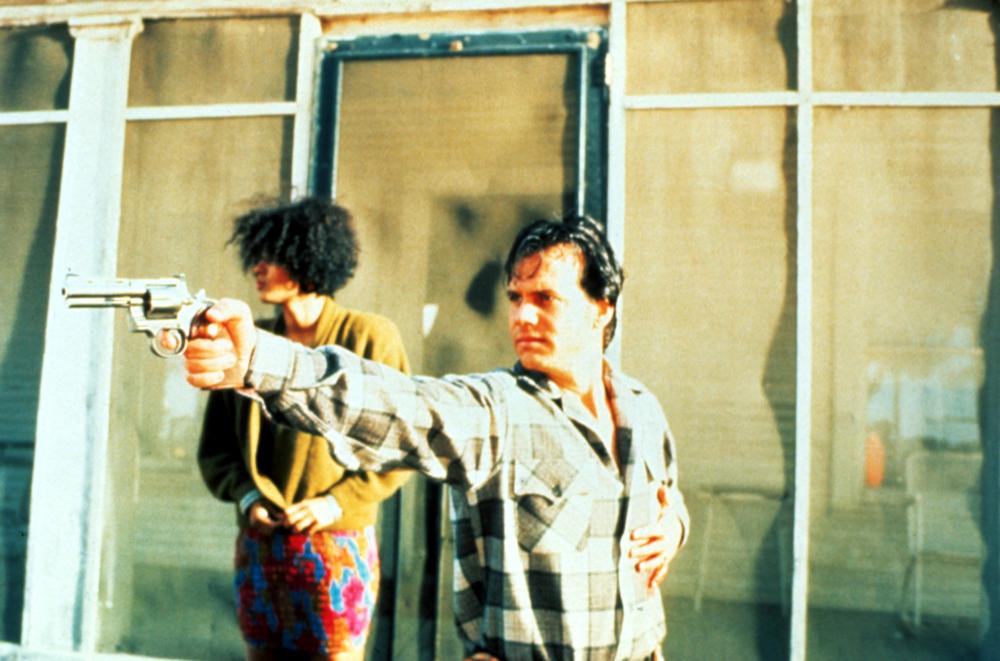
There was a time when serious film critics/reviewers and good word of mouth could make a difference. With only a few filmmaking credits, African-American actor/director Carl Franklin created the crime thriller/character-driven drama “One False Move” with actor/writer Billy Bob Thornton (long before fame), only to see it very nearly go to the then-newish medium of home video (a sad practice many film companies started to jump to around that time rather than trying to help a film find its theatrical audience).
However, such film critics and reviewers as the TV-famed Gene Siskel and Roger Ebert (who were, in their different ways, quite devoted to the craft and art of film) lauded the film heavily (Siskel named it best of that year and it was on Ebert’s top 10 list), and the test audiences who saw it spoke about it fervently, giving it a limited but appreciated release. It would be nice to say that it turned into some kind of hit, but that was out of reach. However, it was seen and appreciated by many of those who did see it. (Franklin continues to direct and had some success in films, but mostly works in TV now.)
The film opens with three interconnected career criminals. Ray, Pluto, and Fantasia, who is Ray’s significant other (played by Thornton, Michael Beach and Cynda Williams, who became one of the several Mrs. Thornton’s during the shoot) brutalize and kill six people over the course of one night in Los Angeles. They are setting up a big drug deal and want the cocaine and money that the knowledge and lives of the six (some more innocent than others) will buy them. They then split town.
The LAPD pieces together clues that suggest that Fantasia, at least, is heading for her Arkansas hometown, the tiny Star City. They get in touch with the dynamic (certainly in his own mind) local sheriff (the late Bill Paxton) who, as it happens, once knew Fantasia, then known as Lilly, quite well.
Much will transpire as the drug deal goes sour and Ray and Pluto join a conflicted Fantasia in Star City. Much will also transpire as the sheriff finds her hiding in a remote house in the country and comes to realizes that the young son she left behind with her family is also his child.
The outcome is much as expected, but the script and players (including Jim Metzler, once a promising critical darling before just vanishing from the film scene) infuse this film with much more feeling than one would expect from a genre piece, with many finding the moving final scene extraordinary. While “One False Move” might never become well known, it is surely a find for those who seek it out.
7. Ride with the Devil (1999)
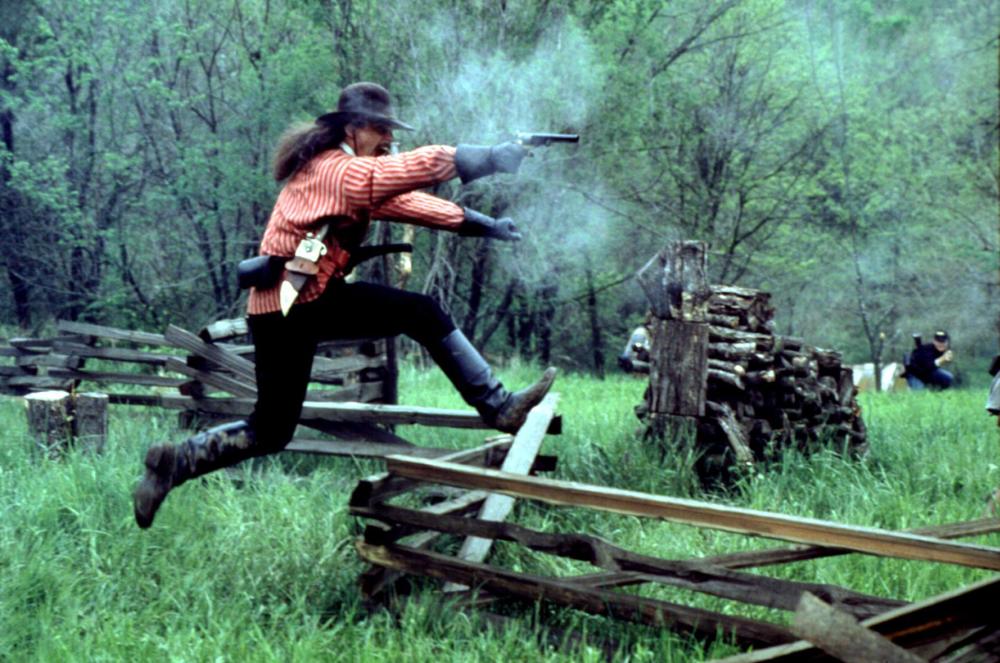
It can be truly sad when hard-fought-for dream projects turn sour. Taiwanese-American director Ang Lee has been luckier than many in not only seeing his cinematic dreams come true, but also in seeing a good number of them become hits. His action-filled Chinese language period drama “Crouching Tiger, Hidden Dragon” (2000) was a huge Oscar-winning hit, especially for a non-English language film.
“Life of Pi” in 2012 was another personal project and unlikely hit, bringing Lee his second directorial Oscar. His first was for the deeply personal “Brokeback Mountain” (2005), perhaps the most acclaimed and viewed gay-themed film by mainstream audiences. However, no one has good luck all the time and he has had his down moments. Surely none was down further than his expensive, somewhat misjudged historical epic “Ride with the Devil.”
Though based on a novel, the film is really a lightly fictionalized version of the bloody conflicts between pro and anti-Union forces in Civil War-era Missouri and Kansas (areas not readily thought about concerning that conflict), with a version the infamous Lawrence Massacre as the centerpiece. In order to ensure viewer interest, these events serve as backdrop to a purely fictional story of tested friendships, divided loyalties and problematic romance concerning youths coming of age in the worst of times.
The film stars Tobey Maguire, Skeet Ulrich, Jeffrey Wright, Jim Caviezel and the then-popular singer Jewel (Kilcher) in her only major acting role to date. It was produced on a high budget and even those who didn’t like the drama (and there were a number who didn’t) did appreciate the meticulous period detail, atmospheric cinematography by Frederick Elmes, and the acclaimed score by Mychael Danna, with contributions from Jewel herself.
However, using a business strategy that almost always fails, the film only received a botched limited release in hopes of netting award nominations which didn’t materialize. Universal then simply wrote off the film instead of even trying to help it find an audience and virtually all of the high budget was lost.
Thankfully, home video’s Criterion Collection gave the film a second life by allowing Lee to create a director’s cut without studio interference, and the revised version ran some 10 minutes longer. Though this version has had a limited viewership, it has been proclaimed by many as the best version of the film. Though this film may have missed out on mainstream success, it is good to know that a pure cut of it exists for the inquisitive viewer to seek out.
8. Sexy Beast (2000)
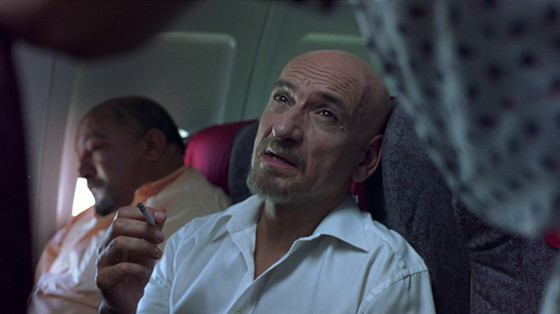
For a country many long thought of as genteel and whose classical cinema most certainly fit that definition, Great Britain can certainly make crime films with the best of them. Though it was the debut film of TV/music video director Jonathan Glazer (who has only made two subsequent and lesser films to date), “Sexy Beast” is considered one of the key films in this British subgenre and looks better and better with the years (it’s always had a cult following, but it should have had more mainstream success).
The plot concerns ex-con safecracker “Gal” (the always rightly tough Ray Winstone), who is now happily retired to a villa in Spain with his adored one-time porn star wife Deedee (Amanda Redman), pal Aitch (Cavan Kendall), and Aitch’s wife Jackie (Julianne White). Things are too good to last and they don’t.
It seems that former Gal associate Don (Ben Kingsley), a crime boss no one in their right mind would want to meet or have around, has decided to pull Gal back into service (much like Michael Corleone in the Godfather films). There’s a big heist in the works back in London and it needs Gal’s touch. Gal isn’t interested but… well, Don is not a man who takes no for an answer (to put it politely). The job will come off, but there will be many a crude, rude, violent and deadly twist before the conclusion.
It’s hard to believe that Glazer never directed a feature film before this one, for he displays a fine sense of staging, pace and feeling for the criminal milieu. He also chose a fine cast which includes Ian McShane and James Fox, but the MVP is plain and simply Kingsley. Yes, he won an Oscar playing Gandhi, but he is also a real actor and has not let that noble Oscar put him in a rarefied mode, accepting only “worthy” roles. His much-lauded (and oft nominated) performance here went a long way toward establishing him as a vital acting presence.
As played by the actor, Don is believable as truly one of the worst human beings a person could ever hope to encounter, and there is no doubt that he will do any awful thing that comes to mind in order to get his way (or just doing so in order to get his kicks). Though the whole film is put together as finely as a Swiss watch, Kingsley is the mainspring.
9. Werckmeister Harmonies (2000)
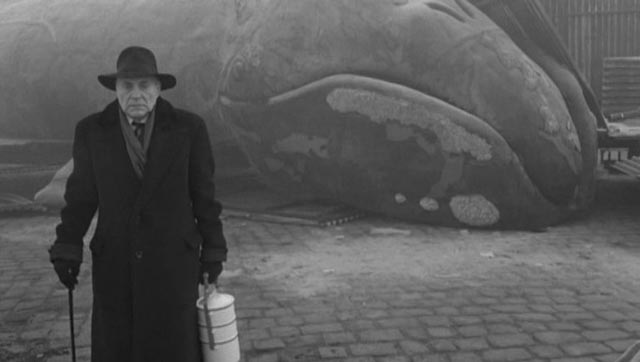
It never took place, but one could imagine Satyajit Ray and Hungary’s Bela Tarr having quite an interesting conversation. Both were among the finest of filmmakers. Both strived to create works that said something about how life is commonly lived (albeit in differing ways). Both were simple yet highly effective in style. Both, like such great filmmakers as Carl Theodor Dreyer, Robert Bresson and Andrei Tarkovsky, made very unhurried films. Both, sad to say, were among the least seen of important filmmakers.
Tarr, much like Ray and the others mentioned, was all about human nature and how a human being works, not about creating an artificial plot (something Tarr deplored). Many of his films are shot in plain black and white (lots of black). All of them contain very few, but very long-held shots (39 shots in a 145 minute film here). Tarr let the films run for however long it takes to examine the theme (and this one is virtually a short subject for him, comparatively speaking).
The “storyline,” let alone the title, is a bit hard to explain, but it plays out wonderfully, hypnotically well for the so inclined. In a little Hungarian town during the communist regime (which had just ended at the time), paper deliverer Janos (Lars Rudolph) is telling his friends at the local bar about the ins and outs of an upcoming solar eclipse. However, he goes into a panic when he hears the news of a dreaded circus featuring a stuffed whale coming back to town, for he knows that it surely portends evil.
A visit to his Aunt Trude (the great German actress Hanna Schygulla) ends up pairing him with her estranged husband, Uncle Gyorgy (Peter Fitz). She wishes for the two men to warn the town about some sort of vague threat. As they go about doing this, the uncle informs Janos that all the badness is the fault of music theorist Andreas Werckmeister (1645–1706), whose ideas clash with the celestial spheres. Uh huh. At any rate, chaos does come about and lots of wild changes take place.
Only a master could have taken such an original idea and made so much about seemingly so little (surely David Lynch must be a fan). When one is so hard to explain, then one is equally impossible to sell to the public. However, anyone who sees this or any other Tarr film knows that they have seen something unusual and special. Tarr got tired of the indifference and retired (but still lives, so there’s hope). However, his work lingers on.
10. The Three Burials of Melquiades Estrada (2005)
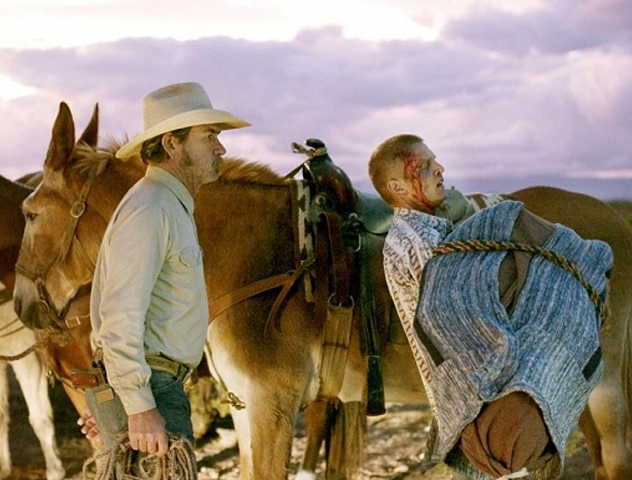
Tommy Lee Jones has long been one of the finest actors in modern cinema, especially in light of having to frequently work in the Hollywood mainstream and still coming off as authentic (and is an Oscar winner and multiple nominee to show for it). However, it somehow isn’t surprising that his one theatrical feature film directorial effort to date was pure indie… and purely excellent.
The plot centers on the demise of the title character and the strange series of events it sets in motion. Illegal Mexican immigrant Melquiades (Julio Cedillo) is shooting at rabbits when callow a young sheriff’s deputy, Mike Norton (Barry Pepper), kills him in what Norton thinks is self defense. He buries the man in a makeshift grave, but his superiors find out, dig Melquiades up, and give him a proper burial.
However, they do wish to sweep the whole thing under the rug. Enter crusty old rancher Pete Perkins (Jones himself). He was the deceased best friend and had promised to bury the Mexican in his hometown should he die in the United States. Finding out who was responsible, Perkins kidnaps Norton and first forces him to dig up Melquiades yet again.
Since the area of Mexico where the man hailed from is so remote, the party of Perkins, Norton and the body must proceed by mule train, at the end of which Norton must bury the body yet again. The arduous journey, which brings much pain, suffering and bit of humiliation to Norton, becomes a surreal rite of redemption and forgiveness for the two men.
Among the many fine filmmakers with whom Jones has worked, the Coen brothers are most prominent (the Oscar-winning “No Country for Old Men,” 2007). This film greatly shows their influence (and this is meant as a compliment) in blending drama with humor containing a surreal edge which is grounded in reality. The leads, especially the underrated Pepper, are quite good and there is a rich supporting cast including singer/actors Dwight Yoakam and Levon Helm, Oscar winner Melissa Leo, and “Mad Men” actress January Jones.
This film won big at Cannes and then… nothing much, if one doesn’t count a home video release. It was surely too original and too starless (Jones sits on the line between star and character actor, again a compliment) for much box office success. However, it was a fine start for Jones as a director. Here’s hoping he will find the desire and means to make other films.
Author Bio: Woodson Hughes is a long-time librarian and an even longer time student/fan of film, cinema and movies. He has supervised and been publicist for three different film socieities over the years. He is married to the lovely Natalie Holden-Hughes, his eternal inspiration and wife of nearly four years.